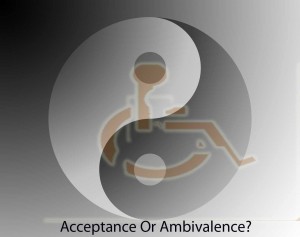The media reflects our values the way a mirror reflects light. If one looks into the mirror of media, one can look into the mind of our society, and get a feel for what our society values and how we treat people as a whole. The reflections that can be seen in the mirror of media, can be used to measure a society’s growth and as a yard stick to see how far they still have to go in regards to their social evolution. Our society has one collective goal. People in our society want to be treated equally. That’s a great thing! Every person in our society is unique with their own potential and each of them deserves to fulfill it in their own way. The mirror of media, helps illuminate how we treat people by shining and empathic light on their potential and reflecting their empathic light toward others.
The light of empathy can easily be reflected in our entertainment media. Think about it for a minute. Our entertainment media, from TV shows to books to plays, and even video games is filled with people with different viewpoints, and different backgrounds interacting, sometimes they are working together, and sometimes, they are in conflict with one another, but ultimately, they live, work, and grow, together.
Many different people, from many different groups are represented in our media. People of different races, genders, and sexual preferences. It is my opinion, that people with disabilities, need more attention in our media if our society’s attitude toward them is going to change in a positive way. How many TV shows have you seen with a character with a disability in the cast? According to this report by the United Nations, people with disabilities are “The largest minority in the world” and yet, they seem to be under represented in our media. I ask again, how many TV shows have you seen with a person with a disability in the cast? How many shows, or books, or games have dealt with disabilities? Please understand, I’m not trying to say that people with disabilities haven’t gotten attention. Shows like Star Trek, Glee, Little House on the Prairie, Dark Angel, and Ironside, have all dealt with the topic of disabilities in one way or another. But it seems to me that those attempts all highlighted the disability itself and not the person with the disability.
When I write a story, I like to use people with disabilities. I try to make the disability just one part of the person’s life instead of all of the person’s life. My disability is, after all, only one part of my life. The folks who read my story will have to judge how well I portray folks with disabilities, but I believe it’s something I’m able to do.
A good mirror reflects the Sun so that each part of it gets an equal amount of light. Sometimes, I think that, even in twenty-fifteen, disabilities are still covered in darkness brought by ignorance and misunderstanding and that the mirror of our media needs to do a better job of reflecting their positive light. Maybe I can help it do that.

